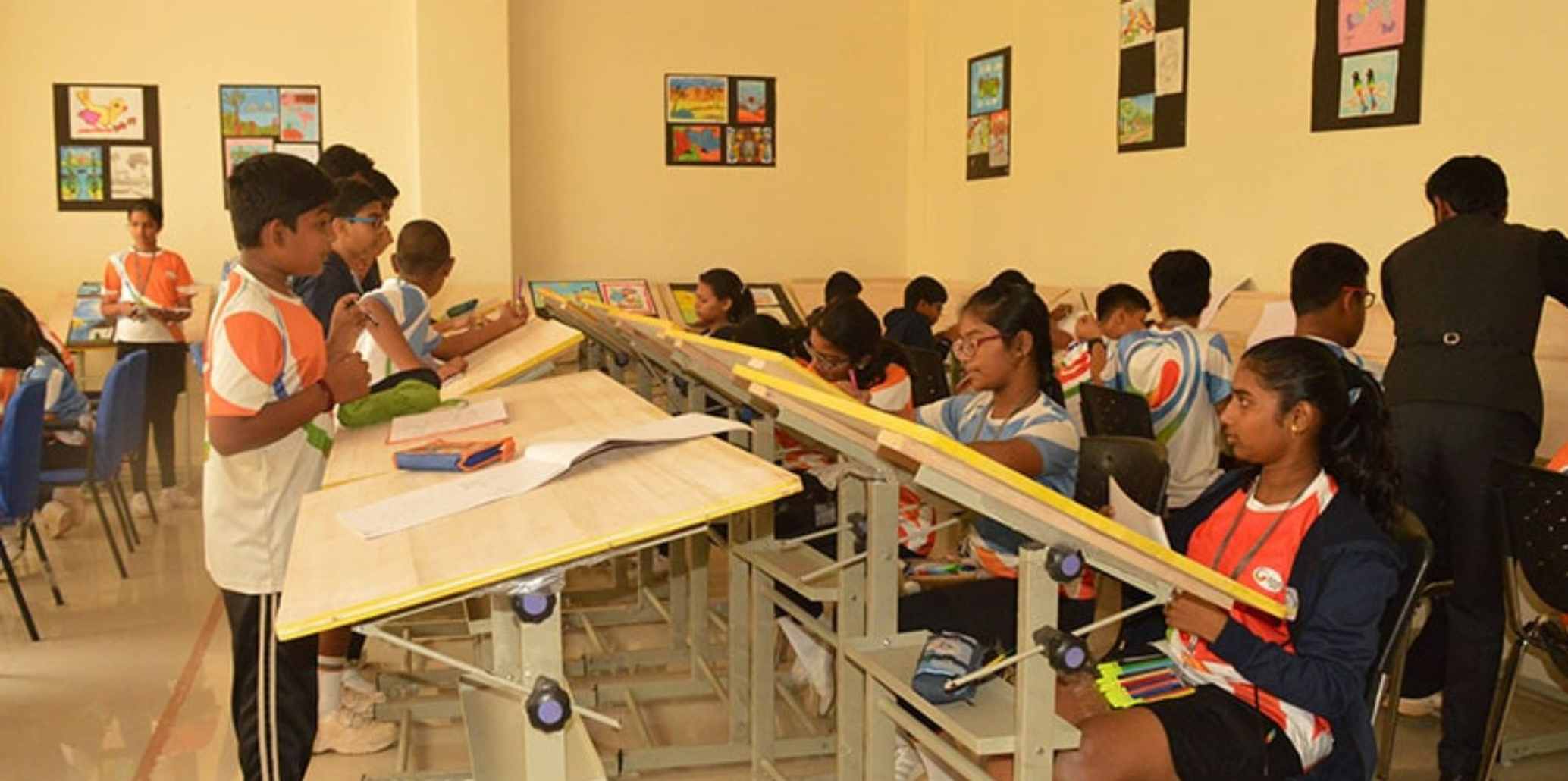The way we study, work, and live is being revolutionized by artificial intelligence (AI). In recent years, AI has made a significant impact in the education sector, offering new ways of enhancing the learning experience for students. The use of AI in education has numerous benefits for students, teachers, and institutions.
Personalized learning is one of the most significant advantages of AI in education. AI algorithms are capable of analyzing performance data on students and customizing the educational process to each student’s needs. This approach helps students to learn at their own pace, in a way that is most effective for them. AI can also support teachers in developing personalized teaching strategies and identifying areas where students may need additional support.
How Ai Is Affecting Education
AI is affecting education in various ways, from personalized learning to automating routine tasks. With the help of AI, teachers can develop personalized teaching strategies that adapt to the individual needs of each student. AI algorithms can analyze data on student performance and provide immediate feedback, allowing students to learn at their own pace. Additionally, AI can automate tasks such as grading and assessment, freeing up time for teachers to focus on more meaningful interactions with students. As AI technology continues to evolve, we can expect to see even more innovative solutions that will further enhance the educational experience for students.
Key Benefits Of Ai In Education And Learning
● Personalized Learning
Personalized learning is one of the most significant advantages of AI in education. Artificial intelligence (AI) algorithms are capable of analyzing data on student performance and customizing the learning environment to each student’s needs. This method enables students to learn at their own pace and in the way that suits them the best.
● Adaptive Learning
AI can support teachers in developing personalized teaching strategies and identifying areas where students may need additional support. Adaptive learning uses AI to analyze student performance data to automatically adjust the pace, content, and difficulty of a lesson based on each student’s needs.
● Improved Student Engagement
AI technology can be used to create more engaging and interactive learning experiences for students. By providing personalized feedback, gamification, and adaptive learning, AI can increase student engagement and motivation.
● Automated Grading and Assessment
AI can automate routine tasks such as grading and assessment, freeing up time for teachers to focus on more meaningful interactions with students. AI-powered grading systems can provide more accurate and consistent grading, reducing the potential for bias.
● Intelligent Tutoring Systems
AI can be used to develop intelligent tutoring systems that provide students with immediate feedback on their work. These systems can help students to learn more effectively by providing personalized feedback and guidance.
● Assistive Technology
AI can provide assistive technology for students with special needs. For example, AI-powered text-to-speech software can help students with visual impairments to access learning materials. AI can also provide personalized support for students with learning disabilities or other challenges.
● Predictive Analytics
AI-powered predictive analytics can help teachers to identify students who may be at risk of falling behind. By analyzing student data, AI can provide early warning signs and enable teachers to intervene before problems become too severe.
● Smart Content
AI can enable the creation of smart content that is tailored to the needs of individual students. Smart content can adapt to the learning style, interests, and pace of each student, providing a more personalized learning experience.
● Data Analytics
AI-powered data analytics can provide insights into student performance and learning outcomes. By analyzing data on student engagement, performance, and behaviour, AI can help teachers to identify areas where students may need additional support.
● Improved Teacher Productivity
AI can automate routine tasks such as grading and assessment, freeing up time for teachers to focus on more meaningful interactions with students. By providing personalized insights and support, AI can also help teachers to develop more effective teaching strategies.
● Access to Education
AI-powered technologies such as chatbots, virtual tutors, and digital assistants can provide access to education for students in remote or underprivileged areas. By providing personalized support and guidance, AI can help to bridge the educational divide and provide equal opportunities for all students.
Pros And Cons Of Artificial Intelligence In Education
Pros:
● Personalized Learning:
AI can analyze data on student performance and adapt the learning experience to meet the individual needs of each student, providing personalized support and guidance.
● Adaptive Learning:
AI can be used to create adaptive learning systems that adjust the pace, content, and difficulty of a lesson based on each student’s needs, providing a more tailored learning experience.
● Improved Student Engagement:
AI-powered technologies such as gamification, personalized feedback, and adaptive learning can increase student engagement and motivation.
● Automated Grading and Assessment:
AI can automate routine tasks such as grading and assessment, freeing up time for teachers to focus on more meaningful interactions with students.
● Intelligent Tutoring Systems:
AI can be used to develop intelligent tutoring systems that provide students with immediate feedback on their work, helping them to learn more effectively.
● Assistive Technology:
AI-powered assistive technology can help students with special needs to access learning materials and provide personalized support.
● Predictive Analytics:
AI-powered predictive analytics can help teachers to identify students who may be at risk of falling behind, enabling them to intervene before problems become too severe.
● Smart Content:
AI can enable the creation of smart content that is tailored to the needs of individual students, providing a more personalized learning experience.
● Data Analytics:
AI-powered data analytics can provide insights into student performance and learning outcomes, helping teachers to identify areas where students may need additional support.
● Improved Teacher Productivity:
AI can automate routine tasks such as grading and assessment, freeing up time for teachers to focus on more meaningful interactions with students and develop more effective teaching strategies.
● Access to Education:
AI-powered technologies such as chatbots, virtual tutors, and digital assistants can provide access to education for students in remote or underprivileged areas.
Cons:-
● Cost:
Implementing AI technology in education can be expensive, making it difficult for some international school and institutions to adopt.
● Technical Complexity:
AI technology is complex and requires specialized expertise, making it challenging for some educators to integrate into their teaching practices.
● Data Privacy:
The use of AI in education raises concerns about data privacy, as it involves collecting and analyzing sensitive student data.
● Bias:
AI algorithms can be biased, perpetuating existing inequalities and disparities in education.
● Over-reliance on Technology:
Over-reliance on AI technology may result in a lack of critical thinking and problem-solving skills among students.
● Limited Human Interaction:
The use of AI may reduce the amount of human interaction in the classroom, potentially impacting student socialization and interpersonal skills.
● Ethical Considerations:
The use of AI raises ethical considerations, such as the use of facial recognition technology or the potential for data misuse.
● Security Risks:
AI technology is vulnerable to cyber-attacks and hacking, raising concerns about the security of student data.
● Technical Issues:
AI technology is not immune to technical issues, such as system failures or errors, which can disrupt the learning experience.
● Job Displacement:
The use of AI may lead to job displacement for some educators, as routine tasks such as grading and assessment are automated.
● Lack of Standardization:
The lack of standardization in AI technology and implementation may result in inconsistent and unreliable outcomes.
See Also : 10 harmful major effects of mobile phones
Conclusion
The importance of AI for students in education activities cannot be overstated. AI technologies have the potential to revolutionize the way students learn, offering personalized learning experiences, adaptive learning systems, and intelligent tutoring systems that can improve engagement and motivation. AI can also help teachers to automate routine tasks and free up time for more meaningful interactions with students. However, it is important to ensure that the use of AI in education is balanced with ethical considerations and concerns about data privacy, bias, and job displacement. Ultimately, the effective integration of AI in education, including school admission, requires careful consideration and thoughtful implementation to maximize its benefits while minimizing its drawbacks.
FAQs
How Does Ai Help Future Students?
Ans – AI can help future students by providing personalized and adaptive learning experiences, intelligent tutoring systems, and predictive analytics to improve academic outcomes and engagement.
What Is The Advantage Of Ai In Education?
Ans – The advantage of AI in education is that it can provide personalized learning experiences, adaptive learning systems, and intelligent tutoring systems to improve academic outcomes and engagement.
How Is Ai Useful In Education In India?
Ans – AI is useful in education in India by providing personalized learning experiences, adaptive learning systems, and intelligent tutoring systems to improve academic outcomes and engagement. It can also help to bridge the education gap and improve access to education.
How Can Ai Help The Classroom?
Ans – AI can help the classroom by providing personalized learning experiences, adaptive learning systems, and intelligent tutoring systems to improve academic outcomes and engagement. It can also automate routine tasks and provide data-driven insights to teachers.
How Is Ai Shaping Students’ Education?
Ans – AI is shaping students’ education by providing personalized learning experiences, adaptive learning systems, and intelligent tutoring systems to improve academic outcomes and engagement. It can also help to bridge the education gap and improve access to education.


 Bannerghatta Campus
Bannerghatta Campus





































